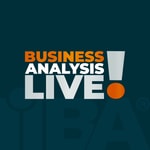Data & Science with Glen Wright Colopy – Details, episodes & analysis
Podcast details
Technical and general information from the podcast's RSS feed.

Data & Science with Glen Wright Colopy
Glen Wright Colopy
Frequency: 1 episode/13d. Total Eps: 89

Recent rankings
Latest chart positions across Apple Podcasts and Spotify rankings.
Apple Podcasts
🇬🇧 Great Britain - mathematics
29/07/2025#39🇩🇪 Germany - mathematics
29/07/2025#64🇺🇸 USA - mathematics
29/07/2025#29🇬🇧 Great Britain - mathematics
28/07/2025#38🇩🇪 Germany - mathematics
28/07/2025#63🇺🇸 USA - mathematics
28/07/2025#25🇬🇧 Great Britain - mathematics
27/07/2025#38🇩🇪 Germany - mathematics
27/07/2025#62🇺🇸 USA - mathematics
27/07/2025#21🇫🇷 France - mathematics
27/07/2025#53
Spotify
No recent rankings available
Shared links between episodes and podcasts
Links found in episode descriptions and other podcasts that share them.
See allRSS feed quality and score
Technical evaluation of the podcast's RSS feed quality and structure.
See allScore global : 42%
Publication history
Monthly episode publishing history over the past years.
Keith O’Rourke | The Logic of Statistics
Episode 91
mardi 2 août 2022 • Duration 01:13:29
Keith O'Rourke | The Logic of Statistics
Dr. Keith O'Rourke talks about the logical reasoning behind statistical modeling. Topics include mathematical vs scientific reasoning, whether science has become too stats focused, and vice versa.
Watch it on... Youtube: https://youtu.be/FqE4ROHBKpY Podbean: https://dataandsciencepodcast.podbean.com/e/keith-o-rourke-the-logic-of-statistics/
Topic List:
0:00 - The logic of statistics 0:30 - What is scientific statistics? 5:15 - The logic of statistics and CS Pierce 9:15 - Role of representation in statistics: explicit vs implicit 14:13 - Diagrammatic Reasoning 18:45 - Why is modeling counterfactual? 19:33 - How can statisticians become better scientists? 28:40 - Science is hard 31:24 - Computational approaches to learning 42:00 - Learning through metaphor 46:28 - Diagrammatic representations vs math 48:40 - Is science too statistics-focussed? 59:35 - Is statistics sufficiently science-focussed? 1:08:40 - Scientific Debate
#statistics #datascience #science
Jack Fitzsimons | Evil Models: Hiding Malware in Neural Networks
Episode 90
mardi 26 juillet 2022 • Duration 51:30
Jack Fitzsimons | Evil Models: Hiding Malware in Neural Networks
Did you know that it's possible to hide malware in neural networks? Actually, you can hide malware in many statistical models. This is the subject of two recently-published papers (aptly titled "EvilModel" & "EvilModel 2.0"). Dr. Jack Fitzsimons makes it easy to understand how this is done, using techniques that began long before computers.
Watch or listen on... Youtube: https://youtu.be/QBnk8ogL8Nk Podbean: https://dataandsciencepodcast.podbean.com/e/jack-fitzsimons-evil-models-hiding-malware-in-neural-networks/
Chris Tosh | The piranha problem in statistics
Episode 82
mardi 22 février 2022 • Duration 01:09:41
The piranha problem (too many large, independent effect sizes influence the same outcome) has received some attention on Andrew Gelman’s blog. But now it’s a paper! Chris Tosh (Memorial Sloan Kettering) talks about multiple views of the piranha problem and detecting the implausible scientific claims that are published. The butterfly effect makes an appearance.
If you enjoyed the science-vs-pseudoscience topics, you’ll enjoy this one.
0:00 - Coming up in the episode
2:35 - What is the Piranha Problem?
19:54 - Confusing effect sizes
23:11 - The "words & walking speed" study
26:22 - Declaration of independent variables
30:58 - Piranha theorems for correlations
37:07 - Piranha theorems for linear regression
40:37 - Piranha Theorems for mutual information
44:13 - Bounds on the independence of the covariates
46:12 - Applying the piranha theorem to real data
50:12 - Applying the piranha theorem across studies
54:05 - A Bayesian detour
1:00:12 - The butterfly effect & chaos
1:04:26 - Applying the piranha theorem to cancer research
Chris Holmes | AI, Digital Health, & The Alan Turing Institute
Episode 81
mercredi 9 février 2022 • Duration 01:03:37
Chris Holmes is Professor of Biostatistics at the University of Oxford and Programme Director for Health and Medical Sciences at The Alan Turing Institute. Chris’ research interests include Bayesian nonparametrics (which is the right kind of nonparametrics), statistical machine learning, genomics, and genetic epidemiology.
0:00 - Intro 1:38 - Chris Holmes, Professor of Biostatistics at Oxford University 3:28 - UK Biobank & designing a valuable dataset 8:42 - Healthcare charities in the UK 11:16 - Digital Health: prioritizing research questions 19:55 - Bayes, nonparametrics, and Bayesian nonparametrics 23:30 - Model prediction is at the heart of Bayesian inference 28:00 - Prioritization in model building for biology 33:09 - Model constraints to generate valid inference 37:34 - Hypothesis driven science in statistical learning versus deep learning 43:30 - Developing models in genomics & clinical informatics 48:37 - Building stable, generalizable and robust models 52:41 - Important questions to think about 54:05 - Causal reasoning and clinical risk prediction 57:50 - What topic should the statistical community debate?
Philosophy of Data Science | Deborah Mayo | Revolutions, Reforms, and Severe Testing in Statistical Thinking
Episode 49
vendredi 4 février 2022 • Duration 53:57
Philosophy of Data Science Series Keynote with Deborah Mayo Episode 1: Revolutions, Reforms, and Severe Testing in Statistical Thinking
In the first keynote of the Philosophy of Data Science Series we have a 2-part interview with Deborah Mayo (Virginia Tech). In the first part of our keynote with Deborah Mayo we cover... - The role of scientific revolution and its implications for statistics and data scientist. - The necessity of statistical reforms and why philosophy will play a role. - The value of severe testing of scientific claims.
Watch it on... YouTube: https://youtu.be/S4VAEShM3BU Podbean:
You can join our mail list at: https://www.podofasclepius.com/mail-list
We're always happy to hear your feedback and ideas - just post it in the YouTube comment section to start a conversation.
Thank you for your time and support of the series!
Topics:
0:00 - Preface to First Keynote Interview 2:00 - Welcome Deborah Mayo! 5:05 - What is the Philosophy of Statistics? 8:15 - What does philosophy add to data science? 16:10 - Scientific revolution in statistics 20:10 - Statistical reforms 24:25 - Replication & hypothesis pre-specification 31:00 - Failure is severe testing 37:25 - Error statistics 48:00 - Scientific progress and closing remarks
Charlotte Deane | Bioinformatics, Deepmind’s AlphaFold 2, and Llamas
Episode 79
mardi 1 février 2022 • Duration 01:16:45
Charlotte Deane | Bioinformatics, Deepmind's AlphaFold 2, and Llamas #datascience #ai
Charlotte Deane (Oxford University) talks about statistical approaches to bioinformatics, the evolution of Google Deepmind's AlphaFold 2 & its place in protein informatics deep learning landscape. She also describes humanizing antibodies, and the increasing role of software engineers in statistical research groups. The topic of llamas, camels, and alpacas (and their unique place in proteomics research) makes a surprise visit.
[Note: This episode was originally published in January 2022, but the file contained a buffering error, which prevented the full interview from being played. This version, published Feb 1, 2022 contains the full interview.]
Topics 0:00 Intro / An important topic to debate 3:50 What is a protein? Why are proteins foundational? 13:32 Immunotherapies, humanizing antibodies, & creating an scientific databases 16:04 Translating in silico research into immunotherapies 21:03 Nanobodies, camels, alpacas, & llamas. 25:05:00 Databases and data knowledge bases 33:21:00 Targeted therapies 39:45:00 Statistical modeling in proteomics 45:40:00 DeepMind AlphaFold's evolution 55:28:00 Software engineers in academic research groups 1:03:21 The adventure of science 1:07:42 Oxford Blues hockey & scientific debate
Eric Schwitzgebel | Consciousness, Zombies, & First Person Data | Philosophy of Data Science
Episode 78
jeudi 2 décembre 2021 • Duration 01:13:24
The philosophical community continuously aims to reconcile differing views on first person data and the consciousness of the mind. Is it possible to live without consciousness? Can one conceive thoughts without matching images to them? In this episode, Eric Schwitzgebel of the University of California tries to dissect such topics and questions to help us better understand the philosophical world.
Keywords: philosophy, epistemic data, first person data, stimulus error, imageless thought, consciousness
Mine Çetinkaya-Rundel | Advancing Open Access Data Science Education
Episode 75
mardi 9 novembre 2021 • Duration 01:20:55
Mine Çetinkaya-Rundel | Advancing Open Access Data Science Education #datascience #statistics #education
Mine Çetinkaya-Rundel (Duke University) describes the current and future states of statistics and data science education. Then she discusses the process of building open access learning material.
0:00 - Introduction 1:40 - Prioritizing topics in curricula 9:07 - Teaching with intent to test 11:22 - Statistics without computing 17:52 - What should be taught? How do we teach it? 19:07 - Computational thinking is valuable (to 31:45) 23:47 - Self reinforcing academics / positive feedback (to 31:45) 31:08 - Data science vs statistics (the computing angle) 37:55 - Statistical collaboration / technical collaboration 39:45 - Common language / imputation under ignorance 41:12 - Are some topics better for hands on or computational learning? 45:32 - Learning computation through visualization 52:40 - Video cut option before she gives an example 52:42 - Let them eat cake first. 56:08 - What is open source education? Open source vs open access. 59:36 - Advancing open source text books 1:03:55 - Economics of open source 1:07:55 - The open education ecosystem 1:12:17 - Modularizing & parallelizing learning topics 1:16:52 - Favorite dataset on OpenIntro.Org? 1:18:14 - What topic should the statistics community debate?
Jingyi Jessica Li | Statistical Hypothesis Testing vs Machine Learning Binary Classification
Episode 74
lundi 20 septembre 2021 • Duration 55:55
Jingyi Jessica Li | Statistical Hypothesis Testing versus Machine Learning Binary Classification
Jingyi Jessica Li (UCLA) discusses her paper "Statistical Hypothesis Testing versus Machine Learning Binary Classification". Jingyi noticed several high-impact cancer research papers using multiple hypothesis testing for binary classification problems. Concerned that these papers had no guarantee on their claimed false discovery rates, Jingyi wrote a perspective article about clarifying hypothesis testing and binary classification to scientists.
#datascience #science #statistics
0:00 – Intro 1:50 – Motivation for Jingyi's article 3:22 – Jingyi's four concepts under hypothesis testing and binary classification 8:15 – Restatement of concepts 12:25 – Emulating methods from other publications 13:10 – Classification vs hypothesis test: features vs instances 21:55 - Single vs multiple instances 23:55 - Correlations vs causation 24:30 - Jingyi’s Second and Third Guidelines 30:35 - Jingyi’s Fourth Guideline 36:15 - Jingyi’s Fifth Guideline 39:15 – Logistic regression: An inference method & a classification method 42:15 – Utility for students 44:25 – Navigating the multiple comparisons problem (again!) 51:25 – Right side, show bio-arxiv paper
Gualtiero Piccinini | What Are First-Person Data? | Philosophy of Data Science
Episode 73
lundi 30 août 2021 • Duration 51:58
Gualtiero Piccinini | What Are First-Person Data?
First-person methods (and its associated data) have been scientifically and philosophically contentious. Are they pseudoscientific? Or simply pushing the bounds of scientific methodology? Obviously, I have no idea… so Prof. Gualtiero Piccinini (University of Missouri – St. Louis) provides a helpful introduction to the topic covering the key points of its history and the philosophical/scientific debate.
0:00 Why cover first-person methods & data? 2:26 First-person methods vs first-person data? 7:10 Are first-person data legitimate at all? 11:50 Phenomenology 13:26 First-person data is extracted from human behavior 18:25 Skepticism & arguments against first-person data 25:40 Psychophysics, introspectionists, behavioralists, cognitivists, and the origins of first-person data 35:20 Using new instruments & methods in science 46:00 Is this where the philosophers roam?
#datascience #statistics #science









